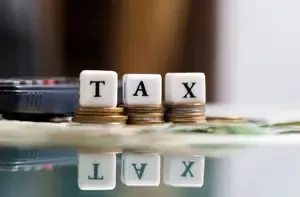Why Did the Government Withdraw the Income Tax Bill 2025 from Lok Sabha?

Synopsis
Key Takeaways
- New Income Tax Bill 2025 replaces outdated laws.
- Focus on simplifying tax structure for individual taxpayers.
- Increased income threshold for tax rebates.
- Support for MSMEs and small businesses.
- Aim to reduce litigation and legal confusion.
New Delhi, Aug 8 (NationPress) The Income Tax Bill, 2025, initially presented in the Lok Sabha on February 13 to supersede the current Income Tax Act, 1961, has been officially retracted, according to sources on Friday.
A revised version of the Income Tax Bill, which integrates many suggestions from the Select Committee led by BJP MP Baijayant Jay Panda, is set to be introduced in Parliament on Monday, as per informed sources.
This step aims to eliminate confusion stemming from multiple iterations of the Bill and to offer a clear and updated version with all modifications included for legislative consideration.
Panda, who spearheaded the Parliamentary Select Committee reviewing the legislation, indicated that the new law, once enacted, will streamline India’s longstanding tax framework, reduce legal ambiguities, and assist individual taxpayers and MSMEs in avoiding unnecessary legal disputes.
"The existing Income Tax Act of 1961 has seen over 4,000 amendments and comprises more than 5 lakh words. It has turned overly complicated. The proposed bill aims to simplify this by nearly 50 percent—making it much more accessible for the average taxpayer to comprehend," Panda stated in a recent interview with IANS.
He emphasized that small business owners and MSMEs, who frequently lack the necessary legal and financial knowledge to manage intricate tax frameworks, will be the primary beneficiaries of this simplification.
The new initiatives are expected to contribute significantly towards establishing a fair and just direct taxation system, ensuring that the working and middle-class populace does not face additional direct tax burdens.
Changes have been made to the slabs and rates to provide advantages for all taxpayers. The revised structure notably lessens the tax liabilities for the middle class, allowing them to retain more money, thereby enhancing household consumption, savings, and investments, as reported by the government.
The Finance Act, 2025, has raised the income threshold for availing a tax rebate under section 87A of the Income Tax Act, 1961, for resident individuals taxable under the new tax regime (section 115 BAC) from Rs 7 lakh to Rs 12 lakh. The maximum rebate amount has increased from Rs 25,000 to Rs 60,000.
According to the Finance Ministry, marginal relief, as previously provided under the new tax regime, is also applicable for incomes slightly exceeding Rs 12,00,000. The upcoming income tax bill aims to simplify the tax filing process for everyday citizens and small enterprises.








